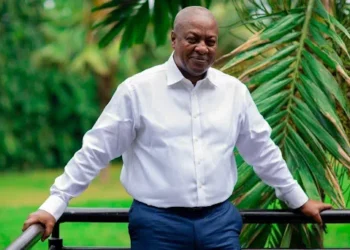Education remains a cornerstone of national development, and the Government of Ghana has reinforced its commitment to ensuring access to quality education by investing in state-of-the-art infrastructure.
The government has commissioned 80 new additional educational infrastructure projects in the Bono East Region to increase accessibility.
This milestone event, held under the auspices of the Bono East Regional Education Directorate, drew participation from key stakeholders, including government officials, traditional leaders, and educationists.
It underscored the central role of infrastructure in enhancing academic achievement and ensuring equitable access to quality education.
A Commitment to Expanding Access to Education
Speaking at the event, Bono East Regional Director of Education, Nana Abakate II, highlighted the significance of these projects.
She commended the government for its vision in initiating and completing critical infrastructure projects that will advance education in the region and beyond. She emphasized;
“On behalf of my Director General and management, we extend our profound gratitude to His Excellency Nana Addo Dankwa Akufo-Addo, the President of the Republic of Ghana, for prioritizing education during his eight years [in] office. Your visionary leadership [is] not only initiating but also seeing through the completion of these critical infrastructure projects. We say Ayikoo to this.”
Nana Abakate II Bono East Regional Director of Education
She further outlined the historical trajectory of the Bono East Regional Education Directorate, which was established in August 2020 alongside five other regional education directorates.
According to her, these infrastructural upgrades are part of the government’s continuous efforts to increase access to high-quality education.
Government’s Vision for Education
Meanwhile, the Bono East Regional Minister Kwesi Adu-Gyan also echoed the sentiments of the Education Directorate and emphasized the government’s commitment to education as a pillar of national growth.
He described the event as a significant milestone in Ghana’s education transformation agenda, tying infrastructure development to the creation of a fair and productive academic ecosystem. He acknowledged;
“Nananom, we have been indeed blessed by the government of Nana Addo Dankwa Akufo-Addo and his able Vice President Alhaji Dr. Mahamudu Bawumia. [ The] event is very important to us as a region and the country as a whole. It is in recognition of the critical role adequate infrastructure [plays] in educational administration, management, and delivery of effective teaching.”
Bono East Regional Minister Kwesi Adu-Gyan
Traditional Authorities Pledge Support
The significance of this initiative was not lost on the traditional authorities.
Nana Kwame Bafu IV, Omanhene of the Nkoranza Traditional Council also, commended the government for its unwavering commitment to educational development.
As custodian of the land, he pledged to ensure that the infrastructure is maintained and kept in good shape to serve generations to come.
This statement reflects a collaborative approach to safeguarding the longevity of the investment, ensuring that these facilities remain in excellent condition for future use.
The Broader Implications for National Development
By addressing the challenges associated with inadequate infrastructure, the government aims to foster academic excellence and equal opportunities for students across the nation.
The more than 80 educational projects integrated and scattered across the country form part of the government’s continuous effort towards increasing access to education by offering state-of-the-art facilities that are tailored to the various needs of students.
This initiative aligns with the government’s broader objective of fostering human capital development through enhanced access to education.
A Transformative Journey in Education

By prioritizing infrastructure development, the government has not only demonstrated its commitment to education but also created a foundation for future growth and development.
As Nana Kwame Bafu IV observed these facilities as instrumental in creating “a future of elites,” does emphasize the transformative impact of adequate infrastructure on the quality of education.
By bridging infrastructural gaps and creating equitable learning environments, the initiative sets the stage for enhanced academic performance and long-term national development in the Nkoranza district.
This demonstrates that through collaborative efforts between government authorities, educators, and traditional leaders, Ghana is poised to reap the benefits of investment in our educational system, thus nurturing the next generation of leaders and innovators.
READ ALSO; Shallipopi Recounts Financial Struggles Before Stardom





















